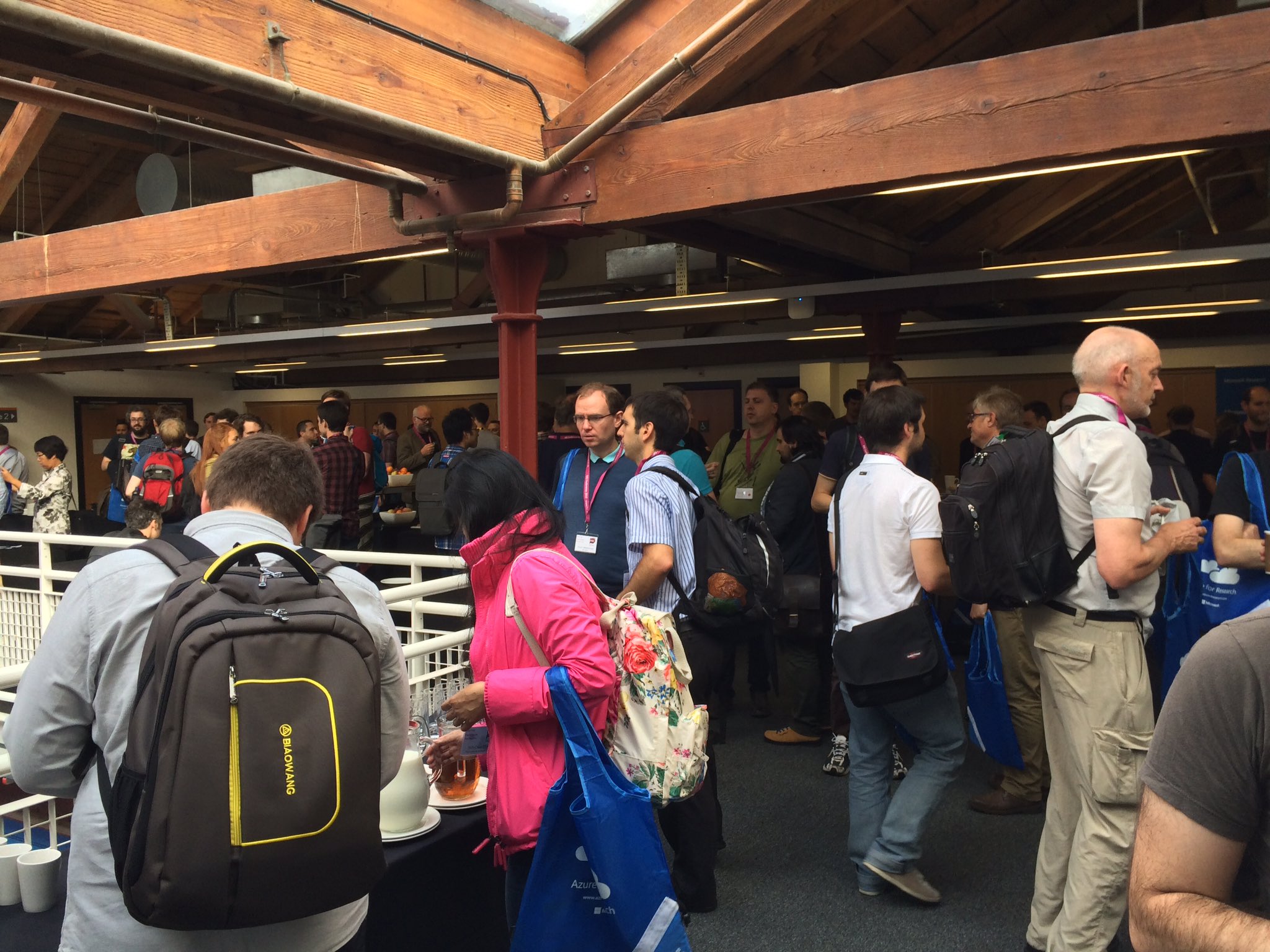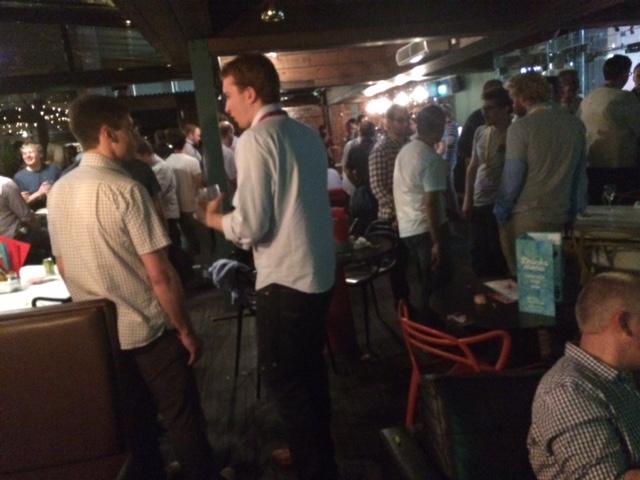
Following a long train from Southampton to Manchester last week, I arrived at the First Conference of Research Software Engineers (RSEs) in the Museum of Science and Industry. This conference aimed to bring together members of the research community who use and write software that supports research. Opportunities to discuss the issues that affect both the RSE community and the wider research community were in abundance, along with some technical workshops for learning the latest techniques in research software engineering. Talks and workshops were split over the two days of the conference, with some in depth discussions including "The Role of the research Software Engineer", and the UKRSE Annual General Meeting.
Some eye opening facts were highlighted in the plenary talks, such as,
"90% of RSEs have contributed to a paper [...] 25% of which have not received credit for it."
Simon Hettrick, RSE 2016
In the hope that it may sway others interested in the RSE community to contribute and attend next years conference, I'd like to list few of the highlights of my experience at RSE2016:
Highlights
-
A fantastic summary of the issues and statistics from Robert Haines and Simon Hettrick. In addition to the figure of under-credited RSEs mentioned above, another stat-that-stuck was that only 11% of the RSE community are female.
-
This quote, again from Dr Simon Hettrick:
"It should be written as 'An RSE', never ... ['A RSE']"
-
Views into the cool work happening at Microsoft Research in Cambridge, including the Kinect Fusion Project for real-time object scanning and 3D modelling via an XBox Kinect.
-
Interesting new ways to 'do science' from Susan Halford of the University of Southampton's Web Science Institute, using the abundance of data available from social media.
- I asked the question "What effect does internal filtering from social media sites have on your ability to study things such as terrorist behaviours?". I was reassured that there have been papers on this...
-
Jim McGrath's tweet on the army of Microsoft branded Tux Penguins (mine is currently sitting on my desk, plotting):
@microsoft's cutest plan for world domination starts at #rse16, apparently... pic.twitter.com/kMtYm90VZC
— Jim McGrath (@workyjim) 15 September 2016
-
Learning about new ways in which people are making software contributions to research more citable and formally creditable, including the Force 11 community, and the Depsy service. Previously I'd only heard of Zenodo for DOI acquisition.
-
Networking with fellow RSEs, both in industry and academia, who share my interests, and work hard to pave the way for future.
-
Chatting about Fortran punch cards (and equally interestingly, how they wrote them!) with some of the guys from Intel at the social; slightly blurry picture below.

Workshop Materials
Material from a few of the workshops I attended are available online at the following locations,
-
Using Docker for Research Software development & deployment - Mark Fernandes.
-
Task-based parallel programming in C++ or Python - Christopher Woods.
Summary
To summarise, this was a hugely successful first conference for the RSE community. The atmosphere were extremely supporting and friendly, and as many others have agreed, I felt very much that I was in the right place at RSE2016. I'd like to reiterate that this is not a conference on computer science, nor is it a conference on any particularly scientific topic, but it is for the people who like to do research and also really care about the code and reusable software aspect.
I would thoroughly recommend going to next years conference, taking place around 7th September 2017.
Many thanks to the conference organisers for a great event!
Comments
comments powered by Disqus